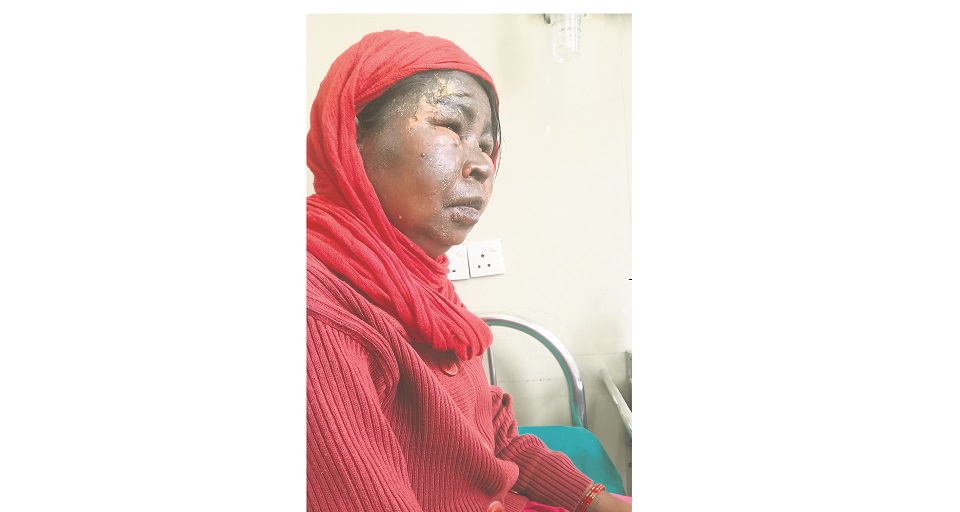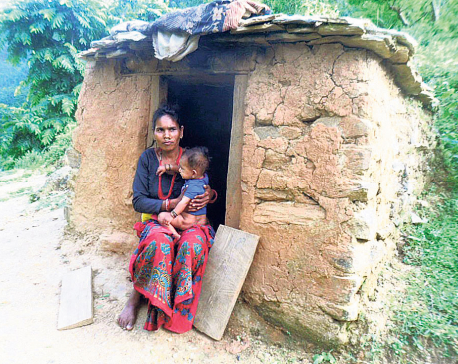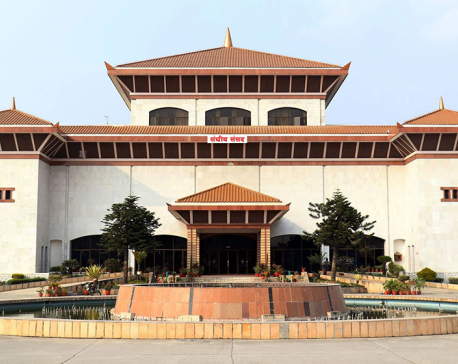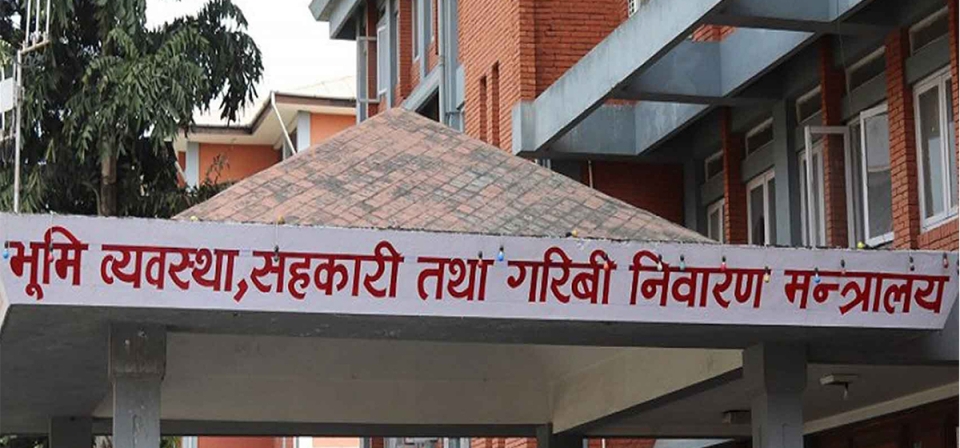
OR
Cruel, inhuman, unpardonable
Published On: November 6, 2019 03:51 AM NPT By: Republica | @RepublicaNepal

Her face was dipped into boiling fish curry simply because she was not cooking fast enough. And then the perpetrator, none other than her husband, locked her inside and left to bring ointment, which he never did. Fearing that his dastardly act would become public and he would have to face the consequences, he ran away the next morning.
This act of barbarism sends the chill down the spine for common readers but this is what Asha Kumari, 26, from Sindhuli district was subjected to this Saturday. Her husband Ritulal inflicted the cruelest punishment to her for not cooking the meal fast enough. Her face has swollen, eyes puckered up and the burned skin turned black. Asha Kumari is now receiving treatment at the TU Teaching Hospital in the capital. But this could be possible only with the help of the local people who took her to nearby hospital for treatment, wherefrom she was referred to TUTH.
Asha Kumari will probably recover soon and we hope she does but the incident has exposed the darkest side of often unreported case of violence against women at the hands of their relatives. Despite being subjected to this inhuman act, Asha Kumari is not in favor of punishment for her husband because she thinks that this will put the future of her children in jeopardy.
Most Nepali women suffer in silence in rural villages despite being the victims of domestic violence primarily because they care more about their children than their cruel husbands. In Sindhuli district for example, according to Republica report, people do not take domestic violence as a big issue unless something really outrageous happens.
Wife-beating and kicking are commonplace. Violence against women in Nepal is rising unabated despite the fact that there are so many stringent legal provisions in place to provide justice to the victims. According to the recent report by Women’s Rehabilitation Centre, 65 percent of total cases of gender-based violence against women are perpetrated by their family members and over 53 percent of such cases are committed by their own husbands.
This shows that most cases of violence against women take place inside their homes. In May this year, National Women Commission revealed that a total of 649 cases of economic violence, 585 of physical violence and 459 of mental violence related cases were registered at the NWC.
Most perpetrators of violence against women get away because of family and community pressure that family disputes should not be made public. Even when the cases are filed against, local administrations tend to encourage reconciliation, pushing the victims to the same cycle of violence. Thus it is vital to enable women to speak up against the crimes inflicted on them without fear. For this, however, the traditional stereotypes that men are the breadwinners and women dependent on men must be broken.
Greater economic empowerment of women is what is required. Besides, the law enforcement agencies must set the strong precedent that every perpetrator of domestic violence, whoever they are, will ultimately face the punishment. Asha Kumari’s case should be an eye opener to how Nepali women are forced to suffer in silence. When women are not safe inside their households, which they sustain and nurture with so much hard work, where else will they be?
You May Like This

Bibeksheel Sajha Party urges authorities to book those guilty of raping and murdering teenage girl in Baitadi
KATHMANDU, Feb 7: Bibeksheel Sajha Party on Sunday urged the authorities concerned including the local administration to bring to justice... Read More...

Ending the stigma of menstruation
Globally, International Day for the Elimination of Violence against Women is celebrated every year on 25 November. On this occasion,... Read More...

Various issues highlighted in HoR meeting
KATHMANDU, Sept 6: Lawmakers speaking during the special time in the meeting of the House of Representatives raised various issues... Read More...





Just In
- Nepal’s poorest district identified as Bajura, richest as Mustang
- Wind storm likely at a few places of Koshi and Sudurpaschim
- EVs adoption in Nepal surge in Nepal with government support measures
- Mayors' Forum urges Finance Minister Pun to settle electricity dues
- By-Election: Voting underway in Ilam-2 and Bajhang-1(a)
- Save the Children report highlights severe impact of air pollution on children
- NATO Serving as a Catalyst to Fuel Violence
- Home Minister denies any delay in providing relief to wildfire and fire victims














Leave A Comment